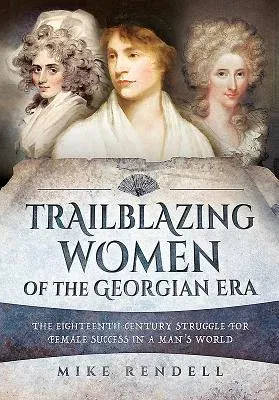Mike Rendell
(Author)Trailblazing Women of the Georgian Era: The Eighteenth-Century Struggle for Female Success in a Man's WorldPaperback, 19 June 2018

Qty
1
Turbo
Ships in 2 - 3 days
In Stock
Free Delivery
Cash on Delivery
15 Days
Free Returns
Secure Checkout

Print Length
176 pages
Language
English
Publisher
Pen and Sword History
Date Published
19 Jun 2018
ISBN-10
1473886058
ISBN-13
9781473886056
Description
Product Details
Author:
Book Format:
Paperback
Country of Origin:
GB
Date Published:
19 June 2018
Dimensions:
24.38 x
17.02 x
1.52 cm
ISBN-10:
1473886058
ISBN-13:
9781473886056
Language:
English
Pages:
176
Publisher:
Weight:
498.95 gm